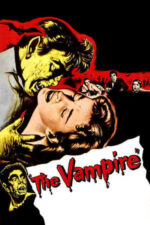Beyond Bedpans & Bandages: Exploring the Complex Image of the Nurse in Film
The image of a nurse – comforting, compassionate, dedicated – is deeply ingrained in our collective consciousness. But film, as it so often does, complicates that picture. It’s fascinating how frequently the role of the nurse appears on screen, not just as a caregiver but as a figure steeped in mystery, menace, or profound personal struggle. We rarely see a straightforward depiction; instead, we get explorations of vulnerability, power dynamics, and the inherent anxieties surrounding caregiving itself.
Think about it: historically, nursing has been a profession largely dominated by women, often expected to embody selflessness and stoicism. Film taps into that expectation – and then twists it. "A Nurse's Revenge," for example, throws that comforting image completely out the window. It’s chilling how easily Sharon manipulates her environment, leveraging the trust associated with her profession to enact a twisted plan. The film isn't just about revenge; it's about exploiting an archetype – the nurturing nurse – to mask something far more sinister. It makes you question: what happens when that inherent trust is broken?
This isn’t unique to thrillers, though. Even in seemingly gentler narratives like "Nurse," we see a nuanced portrayal of a woman rediscovering purpose later in life. Mary Benjamin's journey resonates because it acknowledges the emotional toll of caregiving and the challenges of finding meaning after loss. It’s a far cry from the stereotypical “angel” nurse, showing us a woman grappling with loneliness and professional demands – a much more relatable figure.
Then there are films like "Night of Death!" which lean into the gothic horror tradition. The setting itself—a secluded convalescent home—immediately establishes an atmosphere of unease. Martine’s role isn't just about tending to patients; it’s about navigating a labyrinth of secrets and potential danger, blurring the lines between professional duty and personal survival. It reminds me a little of Daphne du Maurier’s Rebecca, where the new arrival is constantly shadowed by an unsettling past.
What I find particularly compelling is how these films use the nurse's position – their access to vulnerable individuals, their assumed authority – to explore broader themes. "White Uniform in Rope Hell," while undeniably dark and disturbing (and a film I’d approach with caution!), uses its extreme scenario to examine power imbalances and the fragility of personal boundaries. It’s uncomfortable viewing, certainly, but it forces us to confront difficult questions about consent and exploitation.
Ultimately, these films demonstrate that the image of the nurse is far more complex than we often assume. They challenge our preconceptions, forcing us to consider the emotional burdens carried by those who dedicate their lives to caring for others – and what happens when that dedication is corrupted or exploited. It’s a fascinating lens through which to examine not just healthcare, but also societal expectations of women and the enduring power of cinematic storytelling.



































